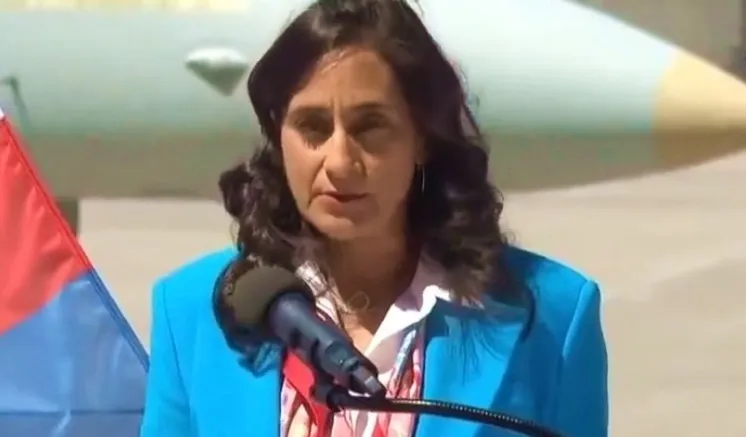
Ottawa: Anita Anand has officially withdrawn from the race to become Canada’s prime minister and announced she will not seek re-election to Parliament. The Transport Minister made the announcement on Saturday, stating she plans to follow Prime Minister Justin Trudeau’s lead and return to academia.
With the Liberal Party leadership contest facing challenges, particularly with an election that favors the opposition Conservative Party led by Pierre Poilievre, two other notable politicians—Foreign Minister Melanie Joly and Finance Minister Dominic LeBlanc—have also stepped back from the race to succeed Trudeau, who recently announced his resignation.
In her statement on X, Anand, who previously held the influential defence portfolio, expressed, “Now that the Prime Minister has made his decision to move to his next chapter, I have determined the time is right for me to do the same, and to return to my prior professional life of teaching, research, and public policy analyses.”
Anand, an expert in business and finance law, was a tenured professor at the University of Toronto and had also lectured at Yale University before entering politics as the MP for Oakville, Ontario, in 2019. Reflecting on her journey, she noted that during her first campaign, many doubted a woman of Indian descent could be elected in Oakville, yet she earned the community’s support not just once, but twice since 2019.
Her father, S.V. Anand, was the son of a Tamil Nadu freedom fighter, and her mother, Saroj Ram, hails from Punjab; both were doctors who immigrated to Canada. Anand joined Trudeau’s cabinet in 2019 as the Minister of Public Services and Procurement, where she played a crucial role in securing medical supplies and vaccines during the COVID-19 pandemic. She later held the defence portfolio and the presidency of the Treasury Board before becoming the Transport Minister last year, also overseeing internal trade.
Reflecting on her swift ascent in government, she stated, “Back in 2019, I could never have imagined that such work would mean navigating supply chains to overcome a global pandemic, addressing sexual assault in the Canadian Armed Forces, ensuring military aid reached Ukraine, overseeing the Treasury Board Secretariat, or reinforcing Canada’s transportation systems.”
With Trudeau’s popularity declining, he has indicated he will resign once a new Liberal Party leader, who will automatically become prime minister, is chosen under the supervision of party President Sachit Mehra. The party aims to complete the leadership election by March 9, ahead of Parliament resuming on March 24.
Opposition parties have threatened a non-confidence vote, which could lead to elections sooner than the expected October timeline for the House of Commons. An Abacus poll following Trudeau’s announcement showed the Conservative Party leading with 47% support, compared to the Liberal Party’s 20%.
With limited time to improve the Liberal Party’s standing, potential leaders are hesitant to take on the prime ministerial role for a brief period, only to face likely defeat in the upcoming election. Additionally, U.S. President-elect Trump’s threat to impose 25% tariffs on imports unless Canada addresses illegal migration has added tension to Canadian politics.
Joly and LeBlanc, who are directly involved with the issues related to Trump’s threats, have also withdrawn from the leadership race to focus on these matters. Among the remaining candidates, Chrystia Freeland, who was ousted as deputy prime minister by Trudeau, and economist Mark Carney, a former governor of both the Bank of England and the Bank of Canada, are now leading contenders.
